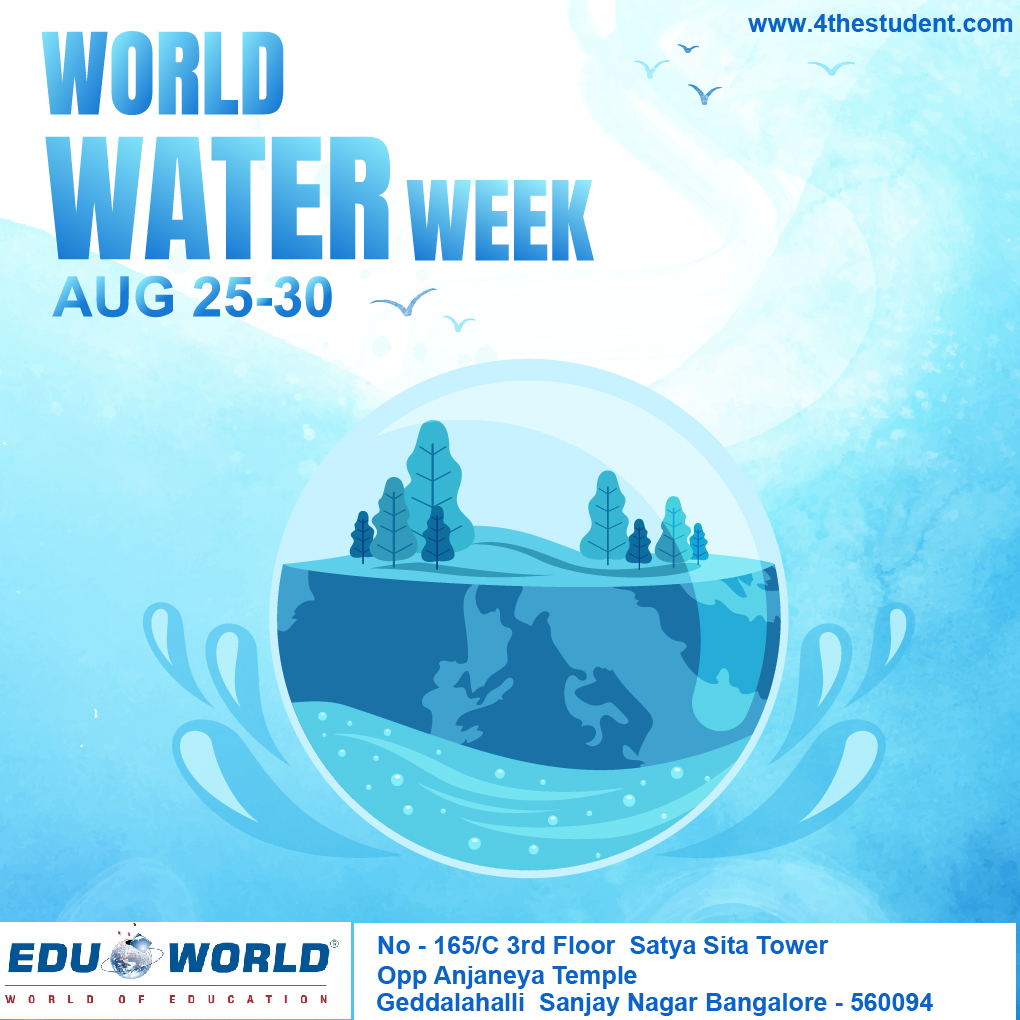World Water week 2022 will be held on the theme ‘Seeing the Unseen: The value of water,” and is built on a global need to not only see, but understand, and more importantly- value water. World water week is the place to explore new ways of managing water and tackle humanity’s greatest challenges: from food security and health to agriculture, technology, biodiversity and climate. World water Day, held on 22 March every year since 1993, focuses on the importance of freshwater. World water Day celebrates water and raise awareness of the 2.2 billion people living without access to safe drinking water. It I about taking action to tackle the global water crisis. Most of the water, about 97% on earth is present in the seas and oceans. It is too salty to be of any use for drinking and industrial purposes. The remaining 3% fresh water, 75% of which is locked up in the polar ice caps and in glaciers and quite deep under the earth’s surface as underground water. The freshwater, which we can use comes from two sources namely, surface water and ground water. The water bearing layers of the soil and rocks are called aquifers. Ground water is very important for agricultural and industrial purposes. Ground water in the form of wells and springs is often the only source of water supply especially in villages and small towns. In spite of a good number of water resources, we have shortage of usable water. This is due to the increasing population, urbanisation and industrialisation. There is a need to optimise use of water and also conserve surface run off of water by means of rainwater harvesting, groundwater conservation, making use of recycling methods etc. Water pollution has a dual effect on nature. It has negative effects on the living and also on the environment. The effects of pollution on human beings and aquatic communities are many and varied. Water pollution causes approximately 14,000 deaths per day, mostly due to contamination of drinking water by untreated sewage in developing countries. An estimated 700 million Indians have no access to a proper toilet, and 1,000 Indian children die of diarrhoea every day and so many other countries too. Nearly 500 million Chinese lack access of safe drinking water.
Edu world feels that, it is pertinent that environmental education should be introduced in schools and colleges at a primary level. Federal, state and local government should establish agencies to monitor our environment and equally be sure that our environment is kept clean and free from refuge dumps. Our industries should adopt green production and green management. Industrial homes and family are equally responsible towards the protection of our mother nature. Every single step matter and everything starts from our home.




